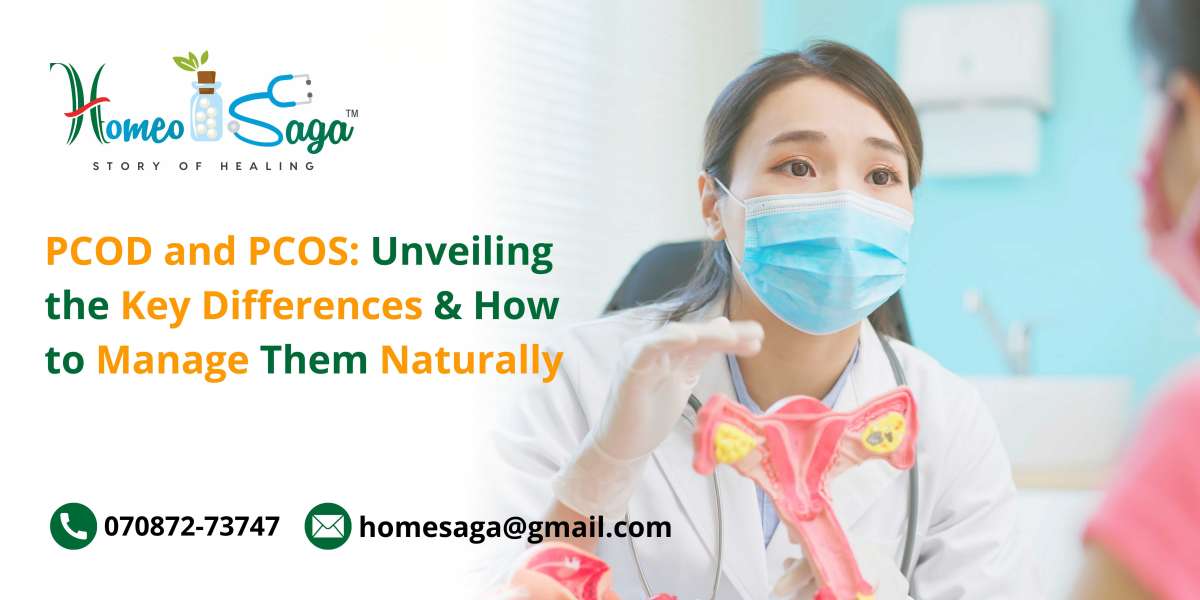Polycystic Ovary Disease (PCOD) and Polycystic Ovary Syndrome (PCOS) are terms that often cause confusion due to their similarities. However, they are distinct conditions with different implications for women’s health. In this article, we will clarify the differences between PCOD and PCOS and discuss natural methods to manage their symptoms effectively.
Defining PCOD
Polycystic Ovarian Disease (PCOD) is characterized by the presence of multiple cysts in the ovaries. Women with PCOD may experience irregular menstrual cycles, weight gain, and hormonal imbalances. While PCOD can lead to various health issues, it is generally considered less complex than PCOS.
Understanding PCOS
Polycystic Ovary Syndrome (PCOS) is a more severe and intricate hormonal disorder. It affects women’s reproductive health and can lead to symptoms such as irregular periods, excessive hair growth (hirsutism), acne, and fertility problems. Additionally, PCOS is often linked to insulin resistance and an increased risk of metabolic conditions, including type 2 diabetes.
Key Differences Between PCOD and PCOS
Hormonal Balance: PCOD usually involves milder hormonal imbalances, whereas PCOS often presents significant disruptions that can affect overall health.
Cyst Formation: Both conditions involve cysts, but those with PCOS tend to have a higher number and more severe implications for reproductive health.
Metabolic Risks: PCOS is frequently associated with insulin resistance and metabolic syndrome, which can complicate management. In contrast, PCOD does not typically involve these concerns.
Severity of Symptoms: Women with PCOS may experience more intense symptoms compared to those with PCOD, including significant issues like acne and hirsutism.
Natural Management Strategies for PCOD and PCOS
While both PCOD and PCOS require individual attention, certain lifestyle changes can help manage symptoms naturally.
1. Balanced Diet
Nutrition plays a crucial role in managing both conditions. Consider these dietary guidelines:
- Focus on Whole Foods: Prioritize whole grains, fruits, vegetables, and lean proteins to nourish your body.
- Incorporate Healthy Fats: Foods rich in omega-3 fatty acids, such as fish, avocados, and nuts, are beneficial.
- Choose Low Glycemic Index Foods: Low GI foods help maintain stable blood sugar levels, which is particularly important for women with insulin resistance.
2. Regular Exercise
Physical activity can significantly improve symptoms and overall health. Aim for a mix of aerobic exercise (like jogging or swimming) and strength training. Additionally, low-impact activities such as yoga or Pilates can be helpful for both physical fitness and stress relief.
3. Stress Management
High stress levels can aggravate symptoms of both PCOD and PCOS. Incorporating stress-reducing practices such as meditation, deep breathing, or mindfulness can enhance well-being.
4. Herbal Support
Some herbs may help alleviate symptoms. For example, spearmint tea has been shown to reduce hirsutism, while cinnamon may aid in improving insulin sensitivity. Always consult with a healthcare provider before introducing any new herbal supplements into your routine.
5. Regular Medical Check-ups
Ongoing communication with a healthcare professional is vital. Regular check-ups can help monitor hormone levels, manage symptoms, and adjust treatment plans as needed. Blood tests can provide insights into insulin sensitivity and other important metrics.
Conclusion
Understanding the differences between PCOD and PCOS is essential for effective management. While both conditions share some characteristics, they require tailored approaches to treatment. By adopting a balanced diet, engaging in regular physical activity, managing stress, and seeking professional guidance, women can navigate the challenges of PCOD and PCOS. Remember, consulting with a healthcare provider is crucial for developing a personalized management plan that addresses your specific needs. Taking proactive steps can lead to a healthier, more fulfilling life.








